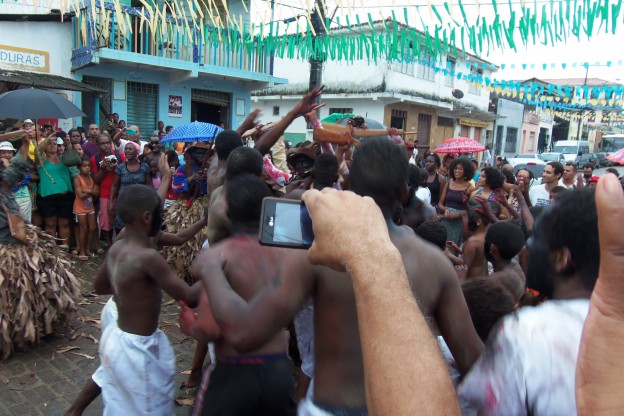Yesterday, the day after my birthday we went to a small town near Santa Amaro to see a kind of festival, although ‘commemoration’ would perhaps be a better term. We got up early, despite birthday party hangover, to catch a bus put on by a tour company. All the excursionists were Brazilian, and local, as far as I could tell, apart from our party which consisted of five foreigners, most of whom live here and another local who is married to one of them.
Acupe, the little town,is on a tidal mangrove river on the Bay Of All The Saints in Bahia, Brazil, and originated as a quilombo, a settlement of escaped slaves. In an annual festival the residents commemorate the period of resistance by slaves and the repression of them. We see children apparently shot at point blank range, we see men and boys begging for mercy on their knees, we see chaos and violence between black people – and we see demons walking the streets.
Despite the many interesting and important aspects of the Acupe festival, the one which I have found most difficult to interpret is the way it was consumed by us, as spectators, as tourists, and in particular as photographers. There was a veritable feeding frenzy of picture-taking which was almost more extraordinary than the actions being documented by the cameras. Continue reading
